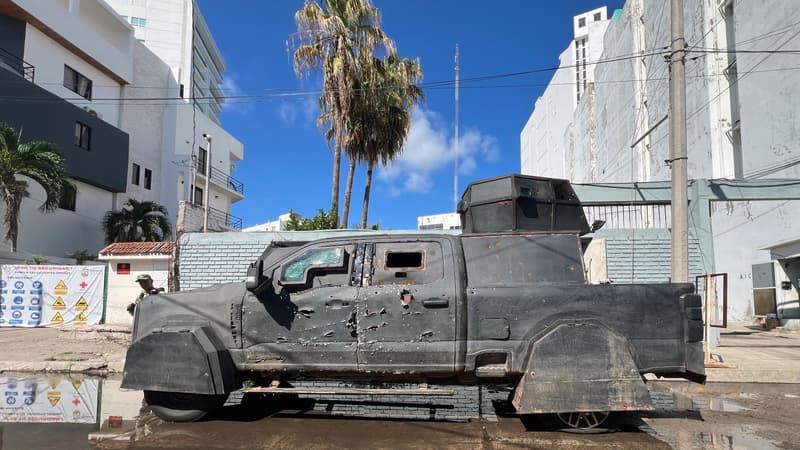Leopoldo Cerdeira opens fire on a car door. His objective: to demonstrate the quality of his armor, to rent it to wealthy foreign personalities or fans who will come to Mexico during the 2026 World Cup. The balls are blocked by the fibers of the solid synthetic layer that covers the 70 vehicles of this Mexican businessman. They are ready for the World Cup, which the country will co-host with the United States and Canada from June 11 to July 19.
These luxury cars recently transported a FIFA delegation that came to visit the country. The fleet, reserved for the Formula 1 Mexican Grand Prix at the end of the month in Mexico, will increase to 80 vehicles for the World Championship. Drivers, armed escorts, bulletproof blankets, bulletproof vests and armored briefcases: a whole range is offered by the security industry, a sector that benefits from the criminal violence that Mexico suffers, with 30,000 homicides a year.
Authorities say they are doing everything possible to ensure the safety of the World Cup, which will be held in three Mexican cities: Mexico City, Guadalajara in the west of the country and industrial Monterrey in the north.
Shield and pepper spray
The Mexican capital, which has already hosted two World Cup finals, in which Pelé’s Brazil was crowned in 1970 and Maradona’s Argentina in 1986, expects to receive five million visitors, but in general it is spared from attacks by drug traffickers. Guadalajara, for its part, is the center of operations of the Jalisco New Generation Cartel (CJNG), a group designated as terrorist by the United States that has promised a reward of 15 million dollars for the arrest of its leader, Nemesio Oseguera known as “El Mencho.”
Shielding alone is not enough to convince the customer: car handles can cause electric shocks, wheels can spray pepper spray, and tires can last 80 kilometers after a puncture.
The daily price to rent one of their cars is between 800 and 1,100 dollars, to which an additional 500 dollars must be added to benefit from a driver and a companion. For $1,500, the customer can also purchase a discreet bulletproof vest. Mexico hosts matches from June 11 to July 5, including the opening match in Mexico City, where an additional 40,000 video surveillance cameras have been installed. In the three cities where the matches will be played, the use of drones will be restricted. In addition to the issue of the quality of its products, the Mexican sector of private security companies must also avoid falling into the hands of drug traffickers, a challenge that businessmen claim to meet.
Parallel sector of the cartel
In any case, the cartels have created their own parallel sector and manufacture “monsters”, huge vehicles with homemade armor. Groups like the CJNG have published videos where their “hitmen” parade in these vehicles armed to the teeth. Earlier this year, authorities dismantled a clandestine armor workshop in the northwestern state of Sinaloa, a stronghold of another of Mexico’s major cartels. Eight years ago, two workers who worked for Leopoldo Cerdeira were recruited by a criminal group. According to the businessman, these groups offer salaries three times higher, but the risk is enormous: his two former employees were found dead in the state of Sinaloa.
Despite their danger, the cartels do not represent a direct threat to the World Cup, says David Saucedo, a security consultant who works for embassies and local authorities. “They themselves have a social base that will benefit from the parties,” he explains. The expert does not rule out a possible tacit agreement with the authorities, who would commit to not carrying out large-scale operations against the cartels in exchange for the assurance that they do not commit “bloody acts that would tarnish the image of Mexico.”
Source: BFM TV


